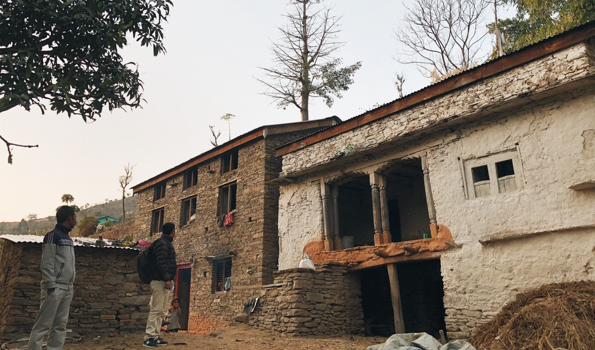By Sara E. Baumann (University of Pittsburgh Graduate School of Public Health)
Images of women and girls sleeping in small sheds in far-flung Himalayan villages have made the in recent years. They are following a centuries old practice called chhaupadi, or menstrual seclusion, in which women and girls are isolated due to a belief that they are impure during menstruation. Often, images of women crouched in dilapidated huts are paired with headlines like, “Where a taboo is leading to the death of young girls” and “In Nepal, tradition is killing women.” But in 2017, the headlines began to shift, with a new focus on the recent criminalization of chhaupadi. Headlines began to pose the question, “Nepal outlaws menstruation huts, but what will take their place?” As a researcher working to generate evidence to inform polices and interventions aiming to improve the lives of Nepali women and girls, I found myself wondering: Are communities and police aware of the new criminal code? If so, what do community members and police think about it? And is criminalization the answer for addressing this deeply-rooted social and cultural practice?
Our new article published in Health Policy and Planning explores these questions through an investigation that took our team deep into the high Himalayan mountains in far-west Nepal. We hiked hours to remote villages where the practice is widespread to gather insights from a range of community members, including fathers, teachers, faith leaders, elders, mothers, adolescent girls, out of school girls, traditional healers, health care providers, and police. Many of the discussions that unfolded surprised us.

Remoteness can lead to challenges in sharing accurate information about the latest health policies. Kalikot district.
While limited knowledge of the criminal code among community members living in remote parts of Nepal was expected – given the remote landscape and limited number of awareness-raising interventions – discovering extremely low levels of awareness among working professionals directly involved in menstrual health and law enforcement was surprising. A lack of awareness regarding the criminal code among many health workers and police was concerning.
Interestingly, after informing community members of the new criminal code, we found that reactions to chhaupadi criminalization were generally positive. In fact, one third of participants expressed that they plan to change their behaviors now that they have learned that the practice is publishable with fines and/or jail time. The study also highlights an interesting perspective from those who have traditionally upheld the practice, such as grandmothers, mothers, traditional healers, and religious leaders. Many of them expressed that the law is likely to change behaviors if community members are made aware of it, and if objective and timely implementation occur.
So, is criminalization the answer? Our findings suggest that a range of community members are supportive of the legislative changes and are hopeful that these policy actions will bring about change. According to the respondents in this study of various backgrounds, criminalizing the practice is a strong start to build upon with awareness and behavior change activities.
Conclusion
Results from this study indicate, from both the perspectives of community members and law enforcement, that criminalization is generally viewed as a positive action for initiating chhaupadi behavior change. However, accurate information about the legislation is extremely low, and thus initiatives are urgently needed to ensure communities and law enforcement are informed of the criminalization and associated penalties. Additionally, even after criminalization, behavior change is anticipated to be gradual and require long-term behavior change interventions that target social pressures associated with upholding the tradition, raising awareness, ensuring mutual cooperation, organizing trainings, involving women and non-governmental organizations, as well as engaging the media. Overall, lessons learned from this study are informative for developing interventions that build upon the momentum of the recent chhaupadi criminalization. Specially, addressing harmful chhaupadi behaviors will require systematic and timely communication channels for sharing the latest information about new codes, a strategy for equitable and timely enforcement of the criminal code at the district and community levels, long-term awareness-raising interventions, and incorporating gatekeepers of the tradition into behavior change interventions. Read our HPP paper for more information about our recommendations, which aim to build upon the momentum initiated by the chhaupadi criminal code.
Access the paper: Is criminalization the answer? Perspectives of community members and police on menstrual seclusion policy in Far-West Nepal
Image credits: Sara E. Baumann











